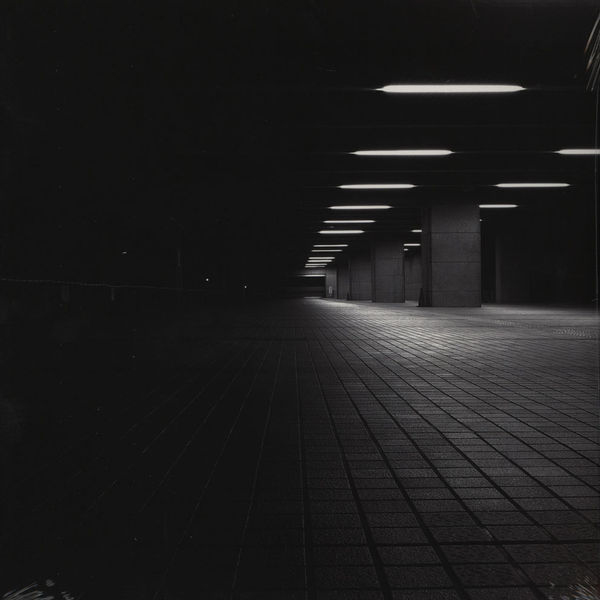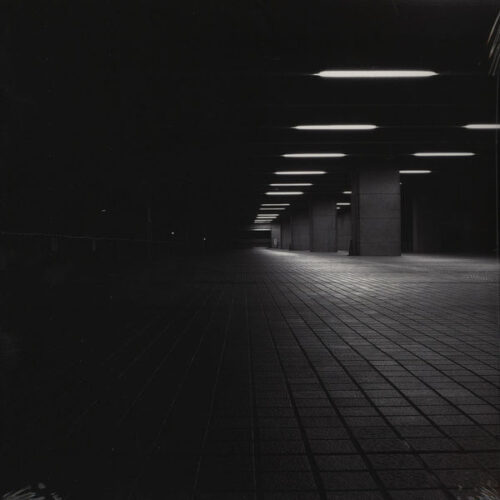"This is a confusing period of time for you Sagittarius… You are discovering a truly expanded sense of who you really are… There is an element of looking ahead with breathless anticipation and also one of slowly feeling into a more conservative streak that honors the past and its limitations. You are in fact both consolidating the insights that have been coming at you fast and furious lately, and simultaneously launching yourself forward into the world in an entirely different way than with previous growth spurts, so that you are this time on more solid ground."
Henry Selzer, AstroGraph.com, May 2011
At the risk of promoting astrology as being anything more than cunningly-worded predictions designed to feel relevant to pretty much anyone, the above quote is what one astrologer said of Sagittarians’ fate at the time Oren Ambarchi’s new album was recorded. With its references to expansion and consolidation it could have been speaking directly to the Australian avant-guitarist, about the sea change in his sound that has been felt across his latest releases.
When Ambarchi spoke with The Quietus earlier this year about Audience of One, his first proper solo release for several years, he acknowledged how very busy he’d been, serially collaborating with other key figures spread across the many international experimental music scenes. From Stephen O’Malley, Jim O’Rourke and Keiji Haino to Thomas Brinkmann and Mats Gustafsson, this mainly improvised work has led to at least six further albums bearing his name so far this year. Then, just as the interview was drawing to a close, he casually let slip he had recorded another solo album, also due for release this year, and how it was "very, very different". That album is Sagittarian Domain, a single, propulsive, polyrhythmic half-hour inferno of guitar, bass and drums; or, as he humbly described it at the time, "a rock record, basically".
Ambarchi’s arguably been mining rock’s essentials since he first developed his idiosyncratic method of turning a guitar into a generator of pure tones ripe for manipulation by a tabletop of effects pedals. But while this saw his solo work often take on a kind of minimalist deconstruction of the power chord – creating parallels going far beyond rock’s mostly conservative idiom to La Monte Young’s hallucinatory combinations of suspended tones – Audience of One showed more explicit influences, from the free jazz of classic ECM LPs to the power pop of Kiss, thanks in part to his collaborations shaking loose his purist processes.
Unbound and, apparently, upgraded to "the best studio in Australia", Ambarchi recorded Sagittarian Domain in a single day to take advantage of the instruments and room he suddenly had at his disposal. The fact that he gets so excited and immediately seizes the opportunity to work within a specific studio in this age of home recording gives an indication of the depth of his appreciation of sound engineering and its complex abilities to imbue rock’s rudiments with new dimensions. Sagittarian Domain is testament to this: using just guitars, a 70s analog synth for bass, and drums (Ambarchi’s first instrument), he has forged an exquisitely balanced and powerful sound whose apparent simplicity belies a multi-layered exercise in displacement and resolution.
Building a lightly irregular rhythm from a lone plucked string, a steady bass pulse joins in, somehow both highlighting the deviations as much as binding them together, while feedback tones wildly spurt and arc like hot springs shooting over the elaborating framework. Fresh beats eventually burst in, motorik in nature, lending its gleaming, monochrome chassis further fuel as they combine to form a compulsive groove. Even though the journey lasts around half an hour without diverting from its fluid formula, its subtle rhythmic morphology, underscored by the dramatic swells of gnarly guitar, brings several stages of rock to mind – from, say, the cosmic prog of Hawkwind, through Goblin’s tension-building thematics, to the hardcore chug of Jesus Lizard.
At the end we’re hosed down from this ‘wall of death’ cyclical ride by a soothing balm of softly swelling strings. But they feel a bit superfluous, the listener now addicted to the adrenaline of travelling on Ambarchi’s astonishing centripetal force. If this is what he can achieve in a day, perhaps only an astrologer can predict what longer spells would produce.



